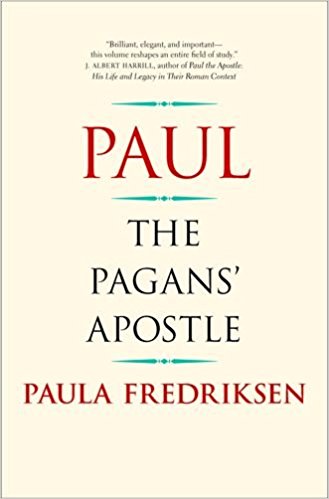What Paul did not believe is that the eschatological situation involved the continuation of the Mosaic covenant but rather he affirmed the inauguration of a new one which incorporated many of the ethical demands of the Mosaic covenant but also incorporated both the teachings of Jesus and the new teachings of apostles like Paul himself—he called it the Law of Christ.
The initiation rite for the new community of Jew and Gentile united in Christ was baptism, a gender inclusive sign, and he warned that neither circumcision nor uncircumcision was an issue or problem or counted (see Gal. 6.15—what counts is new creation; what doesn’t matter is either circumcision or uncircumcision). Why?
Because in the new eschatological situation, the Mosaic covenant was not being repristinized or renewed— it was pro-tempore as Paul says in Gal. 4, until the time had fully come for the Messiah to appear and redeem those under the Mosaic law out from under that Law. This did not mean that the new community would be law-less. It meant it would be law of Christ more.
But there was a graciousness involved. Jewish followers of Jesus could continue to keep kosher, visit mikvaot, observe specific days, and so on. Their consciences should not be violated if this was a matter of conviction for them. But equally Paul was prepared to say than not even Jewish followers of Jesus like himself, had to do those things. They did not have to keep the Sabbath, they did not have to keep kosher. There was freedom of choice about things that had become adiaphora.
Calling any of those things adiaphora of course, sounded like heresy to many Jewish contemporaries of Paul, indeed it even sounded like heresy to the Judaizers amongst the Jesus movement that thought the movement was about incorporating even Gentiles into early Judaism of a messianic sort. Paul was not just persecuted by Gentile officials or Jewish ones, he was even persecuted by some of his own fellow Christ followers as he tells us in 2 Corinthians.
If it seemed to Paul that it was Paulus contra mundum at times, apart from some co-workers and various converts in his churches, he was not wrong about that. And we still have not taken the full measure of just how radical a Jew Paul really was. The attempts to domesticate him by some recent interpreters like Fredricksen do not work. The real Paul is much more controversial and complex than any of us have fully realized thus far.













